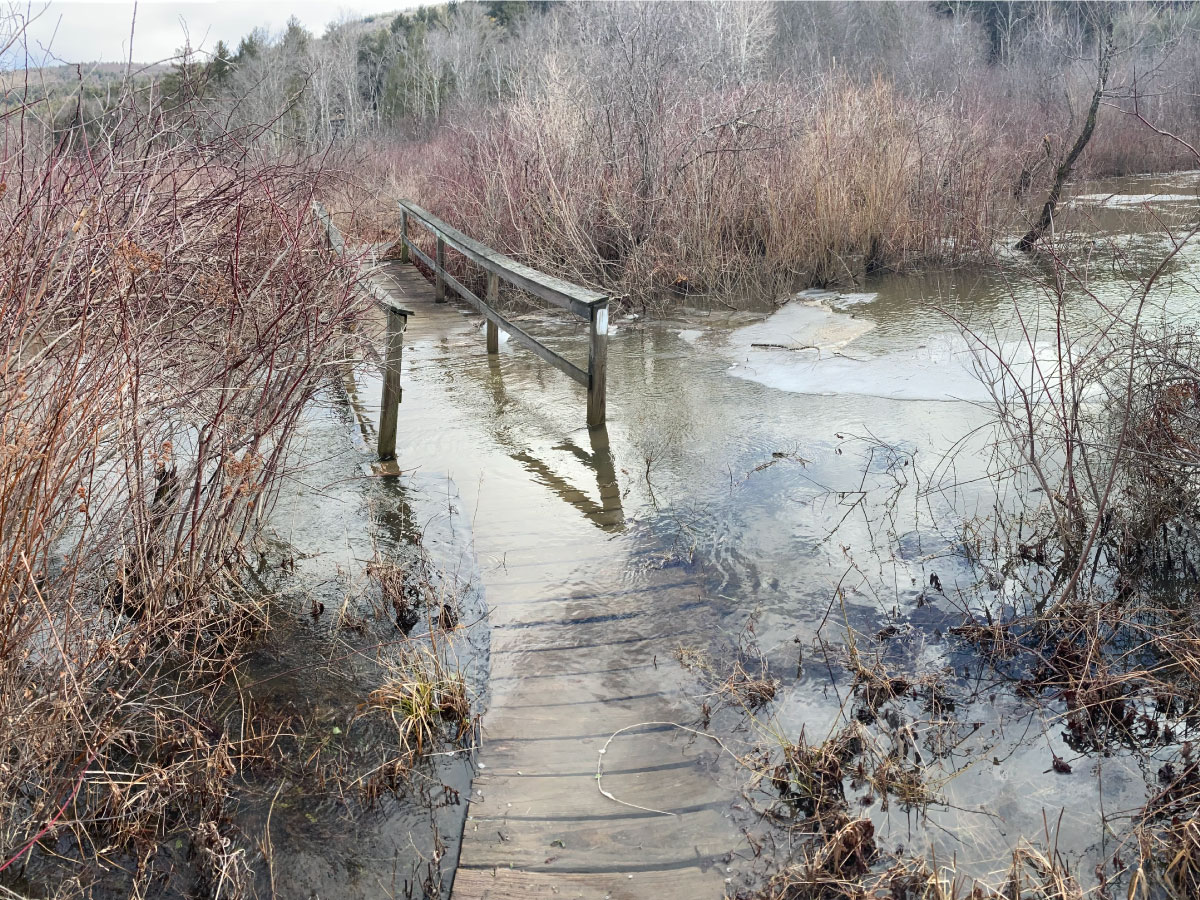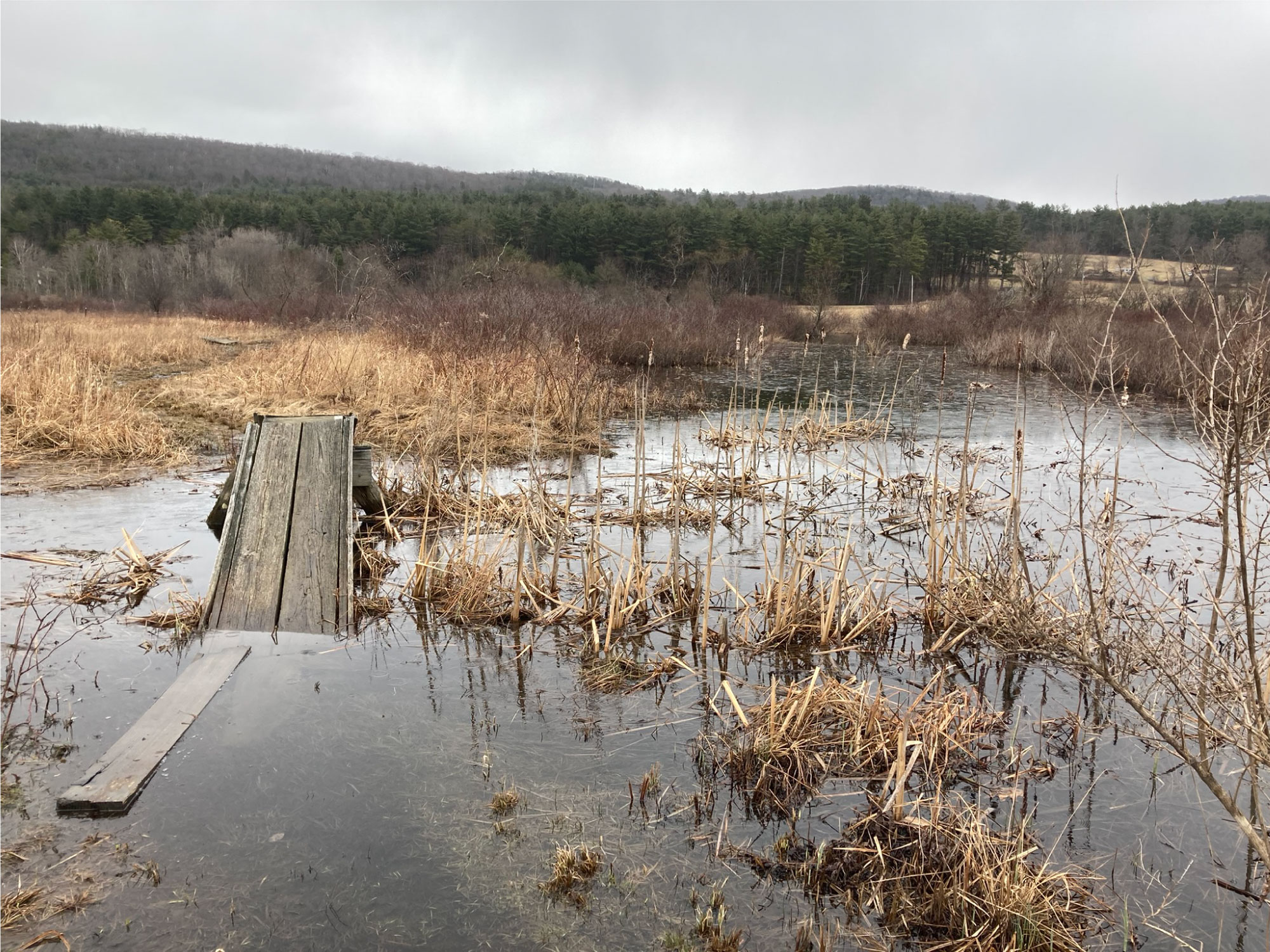Sustainability in the Tyringham Valley
Debra Weisenstein, A.T. Committee
Hop Brook Open Area
Over the past few years, increasing extreme weather events and increased beaver presence in the Appalachian Trail (A.T.) Hop Brook Open Area in Tyringham, MA has resulted in major flooding in the area including: the bridge over Hop Brook, the adjacent boardwalk, and open area footpath. In addition, meanders of Hop Brook have undermined existing structures to the point where repair and relocation are not feasible. These changes in the wetland and watercourse have caused this section of the A.T. to become impassable for months at a time – resulting in hikers trampling in sensitive areas or being rerouted onto the road.This project will foster AMC's goal of adapting to climate change while protecting local plant life and minimizing our impacts.
This project will foster AMC's goal of adapting to climate change while protecting local plant life and minimizing our impacts.
Shaker Campsite
The Shaker Campsite, about 3 miles away from the Hop Brook Open Area and also in the Tyringham Valley, is not able to accommodate current and increasing visitor usage. It is located in an area with many rare plant species that need protection. The immediate area is also prime bear habitat, with feeding and nurse tree sites in close proximity to the campsite. This has resulted in bear encounters in the area as well as bear visits to the campsite's food storage container. The area is also frequented by other wildlife such as deer, turkey, fox, coyote, bobcat, raccoon and fisher. For the long-term good of the wildlife and plant populations in this area, the A.T. Management Committee is planning to relocate the Shaker Campsite to an area that can accommodate more hiker overnight stays while minimizing impacts on sensitive plant and animal populations. Two alternate sites have been identified, one within the Tyringham Valley and one in a more upland location. For over a year, volunteers have visited the sites regularly, assessed the reliability of the water supply, and monitored wildlife populations. Further environmental and cultural protection surveys will need to be completed by professionals before a new site is selected for the campsite. We anticipate campsite relocation in 2025 or 2026.Tyringham Valley
The A.T. Management Committee's Tyringham Valley Project will foster the AMC's goal of adapting to climate change while protecting the wide variety of local plant life, including several rare plant species and a key species threatened by an invasive insect, and minimizing our impact on the wildlife that inhabit the area. We will be doing all this while still providing public access to the remaining wild places in our region, including adding handicapped access to a scenic open area and wetland. Conservation Research Advocacy
Next Initiative: Natural & Cultural Resources Along the Appalachian Trail »



